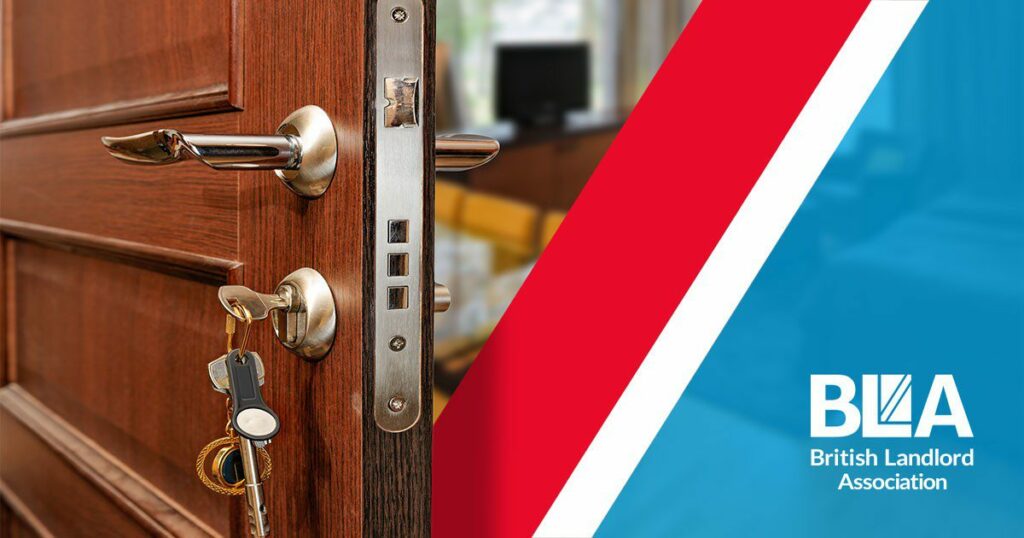Will Our Housing Market Crash 2024?
Until recently, the UK housing market was at its strongest before the EU referendum with COVID-19, and now, the Ukraine war, the UK economy is struggling.
Ukraine Russia news is showing alarming new developments as the war in Ukraine intensifies. Ukraine’s invasion is pushing some world economies to the brink of collapse in Sri Lanka.
It is good to be optimistic; however, we must not delude ourselves into the reality of a pending financial crisis due to the Ukraine & Iran/Gaza war.
Nevertheless, few commentators are making upbeat predictions for our housing market’s performance over the next 12 months. They argue that a housing bubble or government debt is not a problem and that a house price crash is not on the horizon.
A London Estate agent, Sajid, explained: “Housing demand is high, as Bank of England data has revealed for the past 12 months. Low-interest rates, stamp duty holiday and mortgage holiday” Average property prices have shot up.
” “All property values have gone up, but it is due to those who wanted to move but couldn’t due to the coronavirus”. On the other hand, some Londoners are moving out of London to the countryside, reducing the risk of COVID-19.
Now, there is a contraction of first-time buyers stung by the difficulty of getting low-deposit mortgages and the looming rise in unemployment. Low-deposit mortgages are still available, but they are nowhere near the same offers and products we had before COVID-19.
However, Boris Johnson has recently said, “he would turn generation rent into generation buy via a return to 95% mortgages for first-time buyers.” This can only happen if the mortgage regulations are relaxed or an alternative is to provide direct government subsidies for first-time buyers, adding to the various help-to-buy schemes.
Things are getting worse and not better.
The stamp duty holiday, Mortgage Holidays, significantly lower mortgage rates, and the job retention scheme are all important factors creating a property bubble.
We are seeing a housing bubble as demand for mortgages increases, leading to even higher house sale prices.
The Stamp Duty holiday has helped the housing market by supporting a fragile housing market, albeit a temporary fix.
There are signs that the initial rush caused by the stamp duty break is beginning to cool, and it would seem the fiscal stimulus is not likely to support the property market past the 4th quarter of this year.
The Land Registry’s UK House Price Index is a reliable barometer for property prices based on sold residential properties. It works on a two-month lag, so the latest figures are for December.
The HM Land Registry figures reveal the price of a property in the UK increased by 0.7% month-on-month and 2.5% year-on-year in December 2020 to reach £239,196.
Halifax says our housing market will eventually feel the effects of the economic downturn, with” greater downward pressure on house prices in the medium-term.
The Nationwide opinion is that the winding down of government support schemes could” dampen housing activity.” The Centre for Economics and Business Research (CEBR) predicts house prices could fall by 14% in 2021.
If we look at the broader picture now, things are getting worse.
Many countries are already predicting a downturn in their housing market. At the bottom of this page, I have placed links to articles for 4 significant economies as a reference point.
If we study the previous UK real estate bubble and the housing market crashes that followed. We may get an idea of how serious the current crisis could get.
A 2024 housing market crash could be the worst market correction ever seen in the UK, according to Mr Richard Woolnough.
Mr Woolnough, a bond manager at M&G’s, believes house prices went up significantly ahead of the downturn. However, they could decline to record lows, worse than seen in previous housing market crashes.
Mr Woolnough said: “History suggests that when the UK housing market crashes, it tends to fall about 25%- 30% from peak to trough in real terms, but given that UK house prices rose about 270% from 1995 to the end of 2007, there is a risk that this crash could be worse.”
Many commercial and residential landlords wonder, Is our housing market about to crash?
IMF says UK housing 30% above model
How far could UK house prices fall?
The IMF said last autumn that UK house prices were 50% above where models suggested they should be, although the IMF revised that and reduced that to 30%.
Nobody knows how far prices could fall, as long-term economic predictions have a considerable margin for error.
This projection will likely worsen because the banks are becoming increasingly reluctant to lend. This means mortgage approvals, and therefore house prices, could fall much further, he said.
Recent data reveals that properties in London remain the most expensive, with an average price of £477,000, compared to the average of £247,000 in England.
The global pandemic shattered the US economy across the pond, which suffered its most significant blow since the Great Depression in the second quarter. The real estate bubble caused by the steep rise in the US housing price will mean a more considerable fall when it comes.
What happens in the US to housing prices always impacts our economy.
Lenders factoring in crash
The central bank, not just the Bank of England but all major central banks, is very concerned about the debt looming debt crisis.
The coronavirus Pandemic is still not over, with the Delta variant and now the latest variant Omicron central banks are at a loss on how to set any banking policy.
Some major UK lenders are already anticipating a housing market crash. In a message sent to mortgage brokers this morning, Halifax said it would no longer offer mortgages with a “loan-to-value” (LTV) of more than 60%. Only buyers who can provide a 40% deposit will qualify for a mortgage.
UK housing market crash of 2008
The failure of Lehman Brothers left $700bn (£538bn) of liabilities, which created a seismic shock to the global financial system. The money markets worldwide froze, and banks and companies in the developed economies suddenly found they could not borrow money to operate.
Chairman Ben Bernanke of the US Federal Reserve called it “the worst financial crisis in global history.”
Central banks were compelled to lend to banks on an enormous scale to prevent a wave of financial sector bankruptcies of institutions even bigger than Lehman Brothers.
Such a general collapse would have meant, all around the world, wages not being paid, cash machines not operating, panic and civil upheaval.
Gordon Brown’s private concern at the time was, “If you can’t buy food or petrol, or medicine for your kids, people will just start breaking the windows and helping themselves; it’ll be anarchy.”
Like the RBS group, some of our banks were eventually bailed out with unprecedented taxpayer money to restore confidence in the financial markets.
The 1990’s Housing Market Crash
In a nutshell, the UK recession of 1991 was due to high-interest rates, falling house prices and an overvalued exchange rate.
Membership in the Exchange Rate Mechanism (EMR) from 1990 to 1992 was a fundamental factor in keeping interest rates much higher than was prudent.
The ERM caused a real estate market crash, and some saw their homes’ values dip by nearly 50% on average.
What causes housing market crashes?
It is a period of falling house prices when the demand for buying houses declines and more people try to sell them.
The main reasons for a housing market crash include:
A rise in interest rates is unlikely as we will face a worldwide depression. However, historically, a rise in rates will increase the cost of mortgage payments and make buying a house less affordable.
If homeowners take out fixed-rate mortgages, they may be insulated from interest rate rises for 2-5 years, depending on the mortgage term.
In the UK, we saw rising interest rates in the late 1980s and 2005-07, which caused a sharp rise in mortgage payments as a percentage of income.
In both 1991 and 2007, the UK experienced a housing crash after a peak in mortgage payments.
House price to earnings This is a significant concern right now. One major factor determining the underlying affordability of housing is the ratio of house prices to incomes.
A rise in the ratio of house prices to average earnings is a good indicator of a housing market crash.
People spend more on housing costs than on living costs. The population uses credit cards rather than having unacceptable savings, leading to a higher debt spiral.
In 2007, the ratio of UK house prices to earnings reached 5.4; in London, it was over 7.0. The housing crash saw ratios fall. From 2009, the house price-to-earnings ratio recovered, and in London, it reached records.
In 2024, the ratio in some parts of London was as high as 37; in some parts of the southeast, the ratio was 18.
What Countries will be affected by a drop in house prices?
The countries that are going to be most affected by the looming debt crisis are the ones that have seen a rapid increase in property prices in a very short period.
These countries are:
- Canada
- Norway
- Sweden
- Australia
- New Zealand
- Belgium
- Netherlands
Will there be a property crash in 2024?
Many pundits thought we would see a property crash in 2024 due to several factors, such as the pre-pandemic level, the overvalued real estate market, and the debt of the private and public sectors.
With the coronavirus pandemic and the various variants causing uncertainty, most economists believe we will likely see a property market crash in several countries in 2024.
If Rishi Sunak does some clever financial engineering, it may, at best, stave off a property crash in 2024. This means the debt bubble will grow even bigger.
Author: Amanda Goldsmith
Date: 8th of April 2024
Join the British Landlords Association for only £79.95 for a one-year membership. You’ll have free direct access to a lawyer when you need advice, free documents, and access to about 40 products and services. Join now!
Other top blogs:
Oldham landlord jailed 9 years after a tenant dies of carbon monoxide poisoning
Debtors, including Tenants to have protection against Landlords chasing debt
Restriction on evictions extended again for another six weeks.
Disclaimer:
This post is for general use only and is not intended to offer legal, tax, or investment advice; it may be out of date, incorrect, or maybe a guest post. You are required to seek legal advice from a solicitor before acting on anything written hereinabove.





